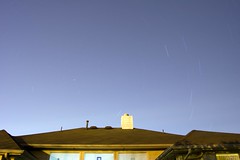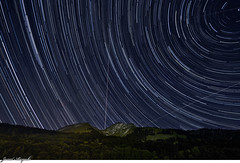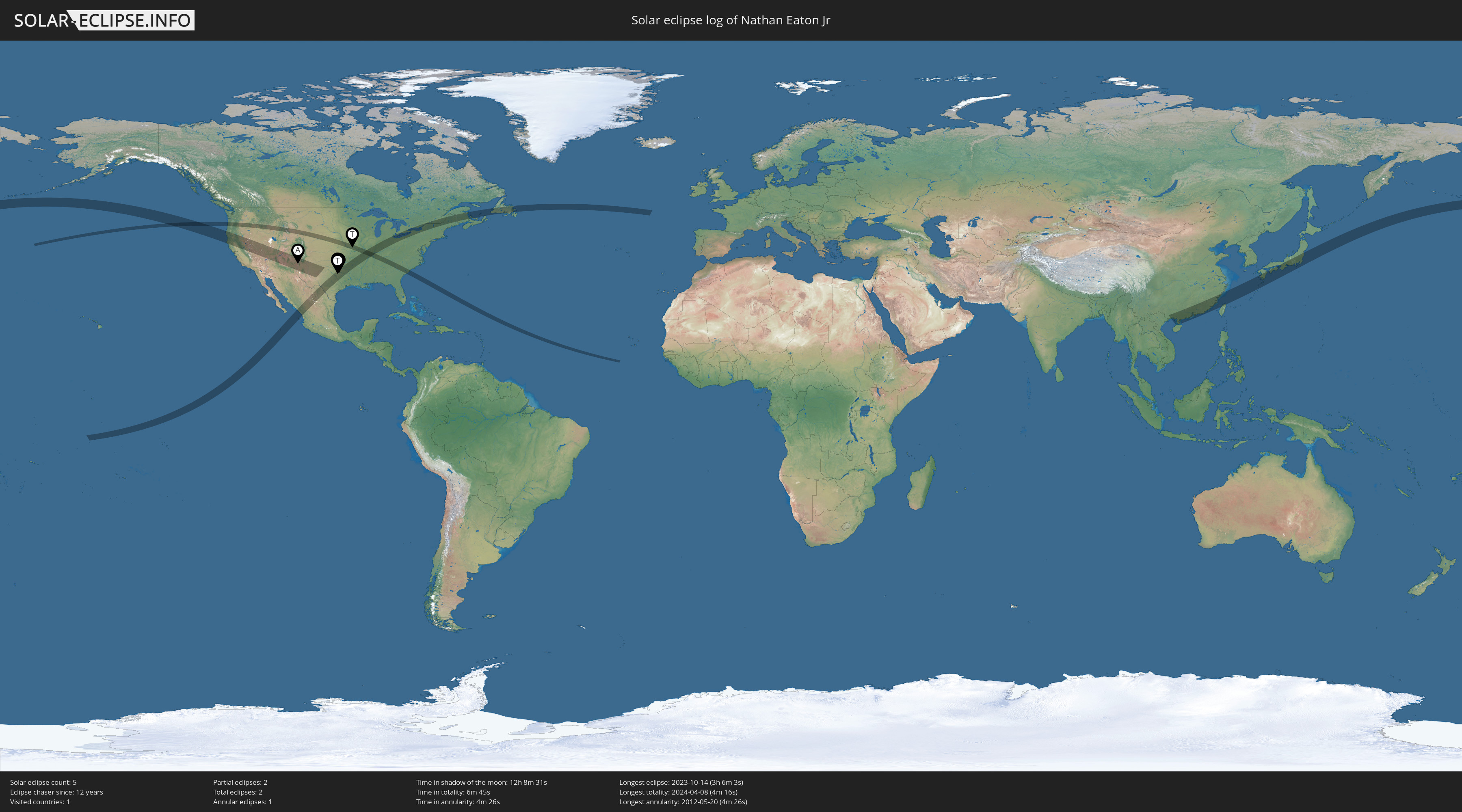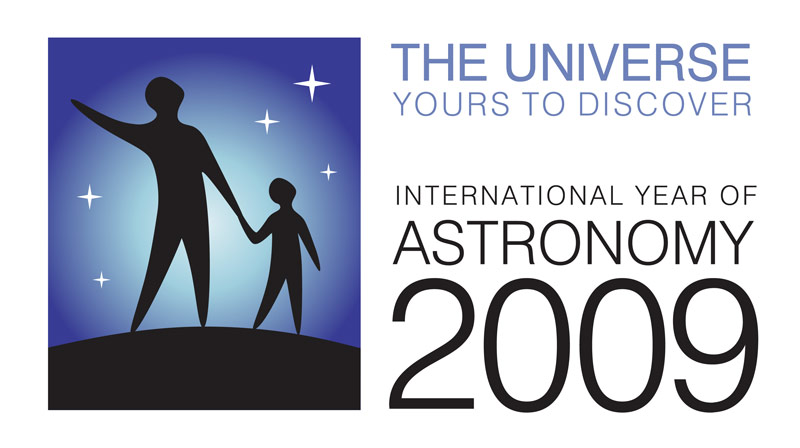Although I enjoy spending time in the countryside, I'm a city boy at heart. I enjoy too many of the amenities conveniently available only in the city... a wide variety of restaurants, the symphony, major museums, etc. That said, there is one thing I don't like about living in town - I've watched the night sky from my backyard disappear over the last 20 odd years.
Our youngest sons are just about to turn 24. When they were small, we could sit in the backyard and clearly see the Milky Way rising up from the southern horizon and crossing overhead. I can't see it at all now and haven't been able to for probably 10 years or more.
While I can still enjoy observing from my own yard, the best targets are obviously the moon and planets... dim fuzzies are just too dim. As an example of the night-time illumination in my area, see the photo City Lights to the right. No, that wasn't taken during daylight. Look closely and you'll notice some faint star trails and even Polaris just to left of center. That shot was taken around midnight under clear skies; the exposure was 30 minutes at F/11 and ISO 200. Compare it to Twinkle ..., taken by Jamal Alayoubi in the Swiss countryside northeast of Lake Geneva. His exposure was almost 4 times as long at F/5 and ISO 500.
One of the most dramatic examples of just how bad light pollution has gotten in certain areas is the light pollution maps at The Night Sky in the World. To see how severe the problem has gotten in my hometown, check out this light pollution map for Dallas, Texas provided by cleardarksky.com. Mesquite is about half-way between the center of the image and the right side. Ouch!
While it is a shame to lose the connection our ancestors had with the sky, there are serious reasons for concern over light pollution including wasted energy, upsetting the natural rhythms of nocturnal animals and birds and possibly even impacts to our own health. The good news is that the issue seems to be getting more attention in the press. National Geographic published a great article on the subject this past November. And while reviewing the International Dark-Sky Association web site for other media coverage, I discovered that Think, one of my favorite programs on our local PBS radio station, KERA, recently highlighted the subject of light pollution. Hopefully, the increased attention - possibly aided by the International Year of Astronomy 2009 events - will begin to make a difference. I'd love for my grandkids to some day see the Milky Way from my backyard.
Sunday, January 18, 2009
Subscribe to:
Post Comments (Atom)























 The journey continues beyond 2009... check it out!
The journey continues beyond 2009... check it out!

No comments:
Post a Comment